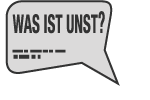+++ “THE KOLWEZI HEARINGS” : THE CONGO TRIBUNAL MEETS IN KOLWEZI (EASTERN CONGO) AND INDICTS COMMODITIES GIANT GLENCORE +++
Only a few weeks after the biggest data leak in African financial history showed the extent of corruption under Congolese ex-president Kabila, the “Congo Tribunal” is devoting itself to the responsibility of political elites and multinational companies in the Congolese mining industry in a session lasting several days from 9 to 11 December 2021 in Kolwezi (eastern Congo).
With the first “Congo Tribunal”, Milo Rau and his team traveled right to the epicentre of the Congo War. The 30-hour tribunal attracted worldwide media attention: The Guardian called the piece a “landmark” and “the most ambitious political theatre project ever staged.” “A mad project,” wrote the German weekly DIE ZEIT, adding that “where politics fails, art must step in.”
From 9 to 11 December 2021, the investigations of the “Congo Tribunal” – a global economic court of the civil society – will continue in the mining region of Kolwezi, where commodities giant Glencore operates two of the largest cobalt mines in the world. Over three days, the presidency and international and local jury members will investigate the responsibility of political elites and multinational companies in a series of human rights violations, cases of environmental pollution and corruption.
After the first interviews in Kolwezi and the preliminary hearings at the Schauspielhaus Zurich in October 2020, a few weeks before the vote on the Responsible Business Initiative in Switzerland, the final hearings of the four cases (press kit) will take place in December 2021 at the plenary hall of the provincial parliament in Manika, Kolwezi. While the hearings in Zurich mainly revolved around the question of what responsibility multinational corporations based in Switzerland assume when their activities violate human rights or pollute the environment, the hearings in Kolwezi will focus on the responsibility of the actors on the ground. At the “Kolwezi Hearings”, chaired by Sylvestre Bisimwa and the Congolese lawyer Céline Tshizena, victims, witnesses, artisanal miners, representatives and critics of mining companies, politicians, journalists and experts are questioned. They end with a final verdict by the international and local jury.
The “Kolwezi Hearings” are the fourth stage of the investigations of the “Congo Tribunal”, following the “Bukavu Hearings” (2015), the “Berlin Hearings” (2015) and the “Zurich Hearings” (2020). In 2015, director Milo Rau had three exemplary cases tried by an independent jury for the first time in a symbolic theatre tribunal in eastern Congo, a region that is still considered a civil war zone and where massacres are regularly committed. He thus created a model for an international civil society tribunal on the mass crimes and economic crimes committed in the Congo.
The seemingly impossible was achieved: Participants from all camps gathered in the theatre hall and gave their testimonies as witnesses and experts. The success of these symbolic hearings was resounding because, for the first time in two decades, a public space was created where victims of displacement, dispossession, rape and murder, massacres and looting could voice their concerns and accusations and be heard by the government and a local and international audience. Nobel Prize winner Denis Mukwege called it a project “of inestimable value to our country.”


